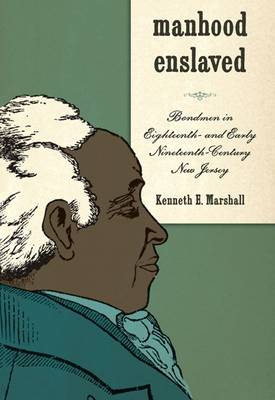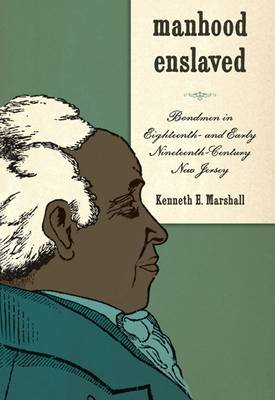
- Afhalen na 1 uur in een winkel met voorraad
- Gratis thuislevering in België vanaf € 30
- Ruim aanbod met 7 miljoen producten
- Afhalen na 1 uur in een winkel met voorraad
- Gratis thuislevering in België vanaf € 30
- Ruim aanbod met 7 miljoen producten
Zoeken
€ 48,45
+ 96 punten
Omschrijving
Manhood Enslaved reconstructs the lives of three male captives to bring greater intellectual and historical clarity to the muted lives of enslaved peoples in eighteenth- and early nineteenth-century central New Jersey, where blacks were held in bondage for nearly two centuries. The book contributes to an evolving body of historical scholarship arguing that the lives of bondpeople in America were shaped not only by the powerful forces of racial oppression, but also by their own notions of gender. The book uses previously understudied, white-authored, nineteenth-century literature about central New Jersey slaves as a point of departure. Reading beyond the racist assumptions of the authors, it contends that the precarious day-to-day existence of the three protagonists - Yombo Melick, Dick Melick, and Quamino Buccau (Smock) - provides revealing evidence about the various elements of "slave manhood" that gave real meaning to their oppressed lives. Kenneth E. Marshall is assistant professor of history at the State University of New York at Oswego.
Specificaties
Betrokkenen
- Auteur(s):
- Uitgeverij:
Inhoud
- Aantal bladzijden:
- 222
- Taal:
- Engels
- Reeks:
- Reeksnummer:
- nr. 2
Eigenschappen
- Productcode (EAN):
- 9781580464352
- Verschijningsdatum:
- 1/08/2013
- Uitvoering:
- Paperback
- Formaat:
- Trade paperback (VS)
- Afmetingen:
- 152 mm x 226 mm
- Gewicht:
- 317 g

Alleen bij Standaard Boekhandel
+ 96 punten op je klantenkaart van Standaard Boekhandel
Beoordelingen
We publiceren alleen reviews die voldoen aan de voorwaarden voor reviews. Bekijk onze voorwaarden voor reviews.








